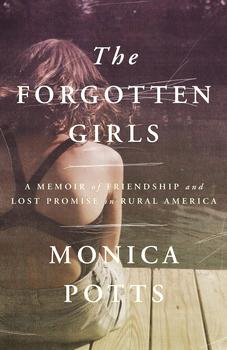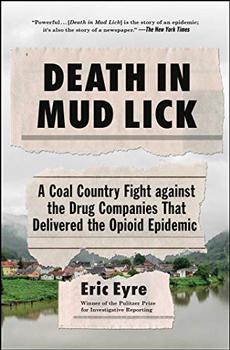Summary | Excerpt | Reviews | Beyond the book | Read-Alikes | Genres & Themes | Author Bio

A Memoir of Friendship and Lost Promise in Rural America
by Monica PottsTalented and ambitious, Monica Potts and her best friend, Darci, were both determined to make something of themselves. How did their lives turn out so different?
Growing up gifted and working-class poor in the foothills of the Ozarks, Monica and Darci became fast friends. The girls bonded over a shared love of reading and learning, even as they navigated the challenges of their tumultuous family lives and declining town—broken marriages, alcohol abuse, and shuttered stores and factories. They pored over the giant map in their middle-school classroom, tracing their fingers over the world that awaited them, vowing to escape. In the end, Monica left Clinton for college and fulfilled her dreams, but Darci, along with many in their circle of friends, did not.
Years later, working as a journalist covering poverty, Potts discovered what she already intuitively knew about the women in Arkansas: Their life expectancy had dropped steeply—the sharpest such fall in a century. This decline has been attributed to "deaths of despair"—suicide, alcoholism, and drug overdoses—but Potts knew their causes were too complex to identify in a sociological study. She had grown up with these women, and when she saw Darci again, she found that her childhood friend—addicted to drugs, often homeless, a single mother—was now on track to becoming a statistic.
In this gripping narrative, Potts deftly pinpoints the choices that sent her and Darci on such different paths and then widens the lens to explain why those choices are so limited. The Forgotten Girls is a profound, compassionate look at a population in trouble, and a uniquely personal account of the way larger forces, such as inheritance, education, religion, and politics, shape individual lives.
Part biography and part investigative journalism, The Forgotten Girls is dense yet very readable, balancing engaging storytelling and pathos on the one hand with enlightening social science on the other. In fewer than 300 pages, Potts imparts the facts of several complicated social ills like fundamentalist power structures, the opioid epidemic, and America's educational and racial caste systems, while also illustrating what it's like to be caught up in them through the empathetic lens of a strained but genuine friendship...continued
Full Review
 (1029 words)
(1029 words)
(Reviewed by Jacob Lenz-Avila).
 In The Forgotten Girls, journalist Monica Potts revisits her declining Arkansas hometown and her childhood best friend Darci, who is locked in a struggle with drug addiction that traditional interventions—stigmatization, directing the victim to God for help—have failed to cure. While Darci's struggle involves a pattern of minor crimes, jail time, faith-based rehabs, relapses and unhealthy relationships that offer drugs and security, Potts notes that another high school friend of theirs manages to hold a job, take care of her family and generally function while taking meth daily. "I thought Darci needed a way to use and still be safe," Potts writes. "Advocates call this harm reduction: prioritizing keeping users alive rather ...
In The Forgotten Girls, journalist Monica Potts revisits her declining Arkansas hometown and her childhood best friend Darci, who is locked in a struggle with drug addiction that traditional interventions—stigmatization, directing the victim to God for help—have failed to cure. While Darci's struggle involves a pattern of minor crimes, jail time, faith-based rehabs, relapses and unhealthy relationships that offer drugs and security, Potts notes that another high school friend of theirs manages to hold a job, take care of her family and generally function while taking meth daily. "I thought Darci needed a way to use and still be safe," Potts writes. "Advocates call this harm reduction: prioritizing keeping users alive rather ...

If you liked The Forgotten Girls, try these:

by Tia Levings
Published 2026
"Today it hit me when he hit me, blood shaking in my brain. Maybe there wasn't a savior coming. Maybe it was up to me to save me."

by Eric Eyre
Published 2021
From a Pulitzer Prize–winning reporter from the smallest newspaper ever to win the prize in the investigative reporting category, an urgent, riveting, and heartbreaking investigation into the corporate greed that pumped millions of pain pills into small Appalachian towns, decimating communities.